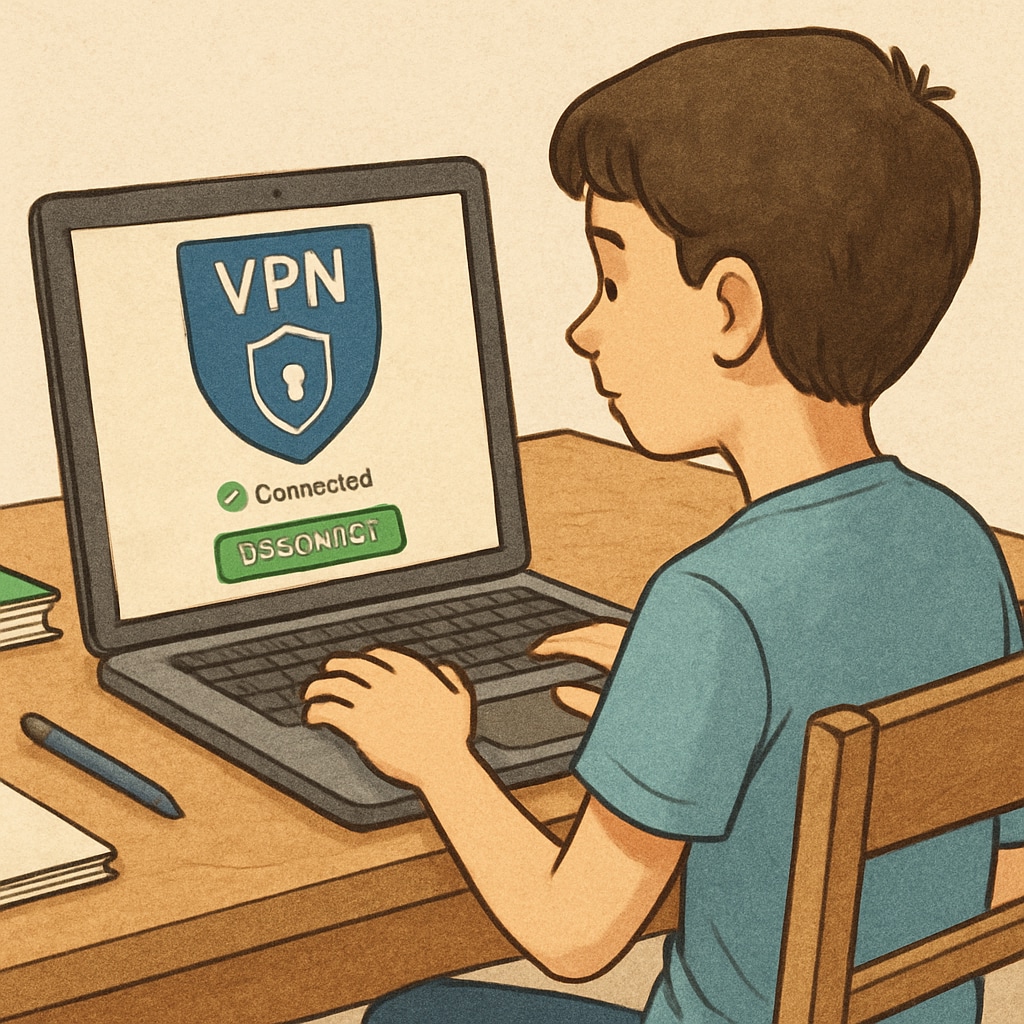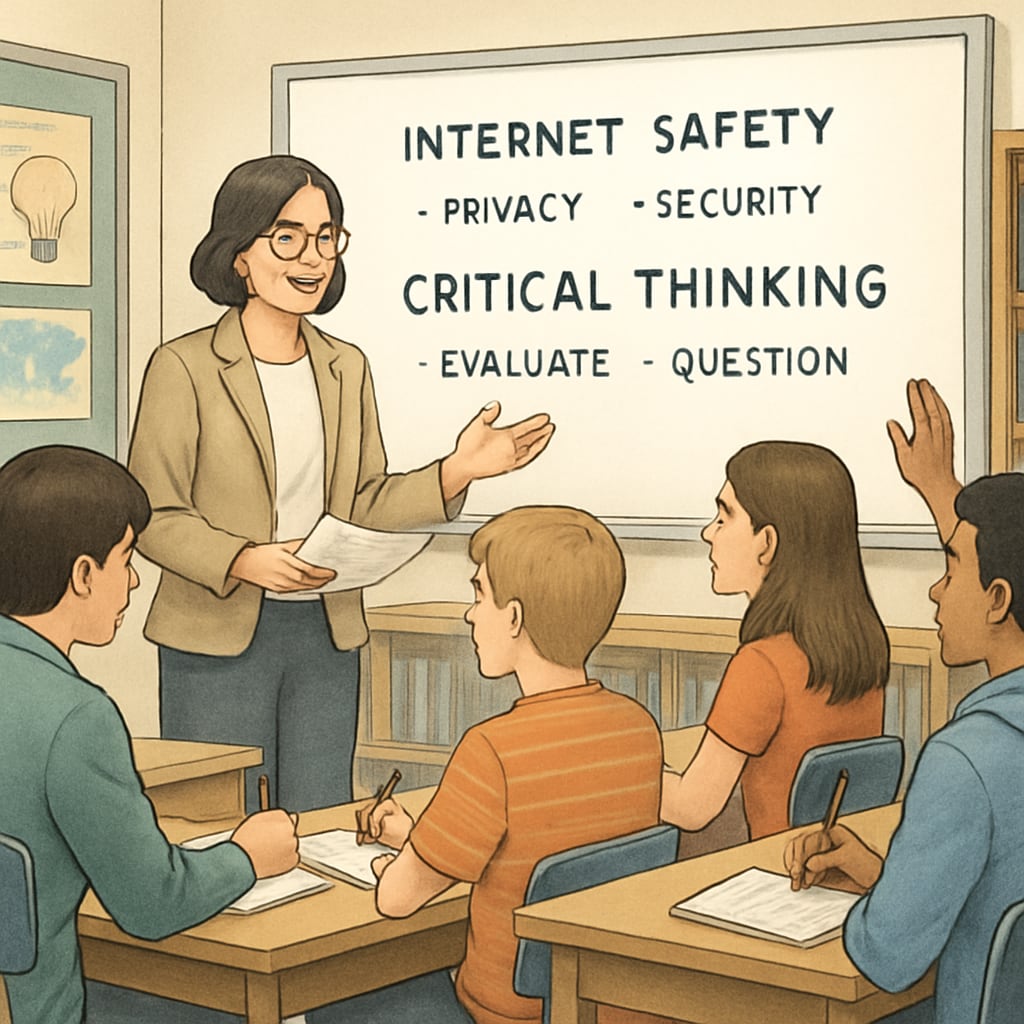The introduction of age verification laws in the UK aimed to protect children from inappropriate online content. However, this well-intentioned policy has led to an unintended consequence: a significant rise in the use of VPNs (virtual private networks). While the laws focus on restricting access through technological means, they reveal a deeper issue—technical solutions alone cannot replace comprehensive digital education. This article examines the implications of these laws, the role of VPNs, and how this situation can serve as an opportunity to rethink youth education in the digital age.
Age Verification and the Rise of VPN Usage
In an increasingly connected world, the UK’s age verification laws were designed to prevent minors from accessing adult content online. Websites hosting such content are now legally required to verify the age of their users. While the policy’s intention is commendable, its implementation has encouraged a growing number of young people to bypass these restrictions using VPNs. VPNs allow users to mask their location, making it appear as though they are accessing the internet from a different country where such restrictions do not exist.
According to recent reports, VPN usage has surged among young individuals in the UK since the introduction of these laws. This trend underscores a critical flaw in relying solely on regulatory measures to control online behavior. For instance, a study by the BBC highlights that VPN downloads have increased by over 200% in the UK following the implementation of the age verification framework.

Why Age Verification Alone Falls Short
The reliance on technological barriers like age verification creates a false sense of security. While these measures may make it difficult for some users to access restricted content, they do not address the root cause—insufficient digital literacy and critical thinking among young people. Moreover, the widespread availability and ease of use of VPNs make it clear that determined users can and will find ways around these restrictions.
The limitations of this approach highlight the need for a shift in focus. Instead of solely relying on technical restrictions, governments, schools, and parents must work together to educate young people about the risks and responsibilities of the online world. This includes teaching them about privacy, ethical behavior, and the long-term consequences of their digital actions.

Turning Challenges into Educational Opportunities
The rise in VPN usage presents a unique opportunity to rethink how we prepare young people for the digital age. Here are three key strategies:
- Integrate Digital Literacy into School Curricula: Schools should include lessons on digital literacy, focusing on privacy, security, and ethical online behavior. These lessons can help students understand why certain content is restricted and the potential risks of bypassing those restrictions.
- Promote Parental Involvement: Parents play a crucial role in guiding their children’s internet use. Workshops and resources can help parents understand the tools available to monitor and educate their children about safe online practices.
- Encourage Open Dialogue: Instead of relying on fear-based approaches, fostering honest conversations about online content can help young people make informed decisions. This approach encourages trust and empowers teenagers to navigate the internet responsibly.
By focusing on education rather than restriction, we can equip young people with the skills needed to become responsible digital citizens. This proactive approach not only addresses the limitations of age verification laws but also prepares youth for a future where internet access is inevitable.
The Path Forward
The unintended consequences of the UK’s age verification laws, including the surge in VPN usage, highlight the need for a broader conversation about online safety and youth education. While technical measures have their place, they must be complemented by efforts to foster digital literacy and critical thinking.
As a society, we must recognize that the digital landscape is ever-changing. Policies must evolve alongside technology, but education remains the cornerstone of any long-term solution. By investing in digital literacy and fostering collaboration between schools, parents, and policymakers, we can create a future where young people are empowered to navigate the internet safely and ethically.
In conclusion, the rise of VPN usage in response to age verification laws is a wake-up call. It is not just a technical challenge but also an educational one—one that demands a comprehensive, collaborative, and forward-thinking approach.
For more information on digital literacy and online safety, visit Digital Literacy on Wikipedia.


